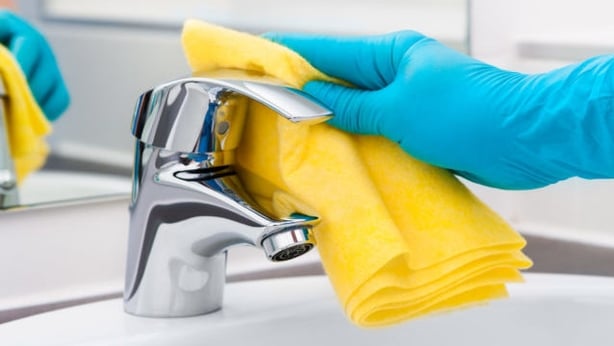When Jennifer O'Connell, a journalist with The Irish Times, published an article last Saturday stating that "housework is the big, hairy, sexist elephant in the room", the responses were swift, and intense.
Writing on Twitter just a day after the piece published, O'Connell said that she'd received "more abuse over this article ON HOUSEWORK than anything I’ve written in a long while", as more fervent and deeply held opinions from readers circulated around the matter.
I’ve had more abuse over this article ON HOUSEWORK than anything I’ve written in a long while. I’ve been told my husband should shut me up if he was "any kind of man". I’ve been accused of lying and contributing to male suicide rates. And people wonder why we still need feminism https://t.co/CDaf600nQV
— Jennifer O'Connell (@jenoconnell) May 19, 2019
O'Connell's argument was that in homes where both people work full time, the domestic housework should be split 50/50.
"I'm not saying 50/50 on every single task ... and not even necessarily on every week, because there might be one week when I'm busy and my husband does more and then the following week he might be traveling and I do everything", she told The Ray D'Arcy Show.
In general, however, she says the work should be split equally - something that Irish men are falling short on, according to the statistics.
"The most recent statistics we have across the EU are 2017, which is fairly recent, and they found that 90% of Irish women do an hour a day of cooking and housework, compared to just under 50% of men.

"I think in a way it's the last big frontier that's holding women back, it's something we don't talk about enough."
An aspect of the article that provoked particularly impassioned responses as O'Connell's observation that men who do step up to the plate and do the dishes or cook dinners are showered in adulation, disproportionately so.
"In a way, that's nice from the older generation but I don't think women my age and younger should be saying 'I'm so lucky', 'I'm #blessed because he gave me a lie in' or my pet hate, as I say in the article, 'he's babysitting the kids'. No, you can't babysit your own kids."
O'Connell explained that as her husband will cook dinners, she hears such comments as "you have him well trained" often.
"We need to stop doing that because that gratitude suggests that it is the woman's job to delegate and the domestic realm is very much the woman's territory and that's just not the case anymore."
One of the facts underscoring this discussion - and no doubt one of the reasons that it is a sensitive topic, and hard to discuss - is that in older generations, the bar was set very low for the men of the family, and they delivered.
While O'Connell says there has been a shift "in certain parts of parenting" - particularly when it comes to being around kids and being a hands-on, attentive father - the lack of help persists in the "boring" housework like cleaning or laundry.
As for the claim that women are better suited to housework or can do it particularly well, O'Connell says "none of us came out of the womb with a bottle of Dettol. There's no special skill set required".
Among the many responses the article received were those from women relieved to have their own frustrations expressed, and many who referenced "the mental load", which O'Connell described as "the emotional and psychological burden of having to remember who needs new shoes, who's got a birthday party this Saturday, who's got an activity Monday night, who might need money for the school trip".
"That's a huge drain".

This in addition to "the second shift", the part of a woman's day when she comes home from work and has to begin working again in the home. With more women working full-time in addition to balancing parenting duties, the term is becoming more mainstream, something O'Connell is glad to see.
"I think it's really important to recognise that this is the reality of life for a lot of women now".
According to research in the area, it will take 75 years until men take on 50% of the domestic work, if current rates continue, which O'Connell calls "scary".
"This is the case over the world. Irish men are actually fairly average in the EU, and even the very best country - which is ... Sweden, of course - 73% of women do daily housework and only 56% of men."
Globally, the situation is even more dire: research shows that in the US men who have high-powered jobs have spouses who do more childcare, whereas women with high-powered jobs have husbands who sleep more and watch more television.
So how do you reverse decades of low bars for men and high expectations for women when it comes to housework? O'Connell says that men need to "step up to the plate". As well as this, she says that both men and women need to overcome the gender stereotype that women are better at housework.
These gender divides "no longer reflect the reality of our lives", she says, adding that "modern marriage, it's not fit for purpose anymore".
To listen back to the full interview, click the video above!

